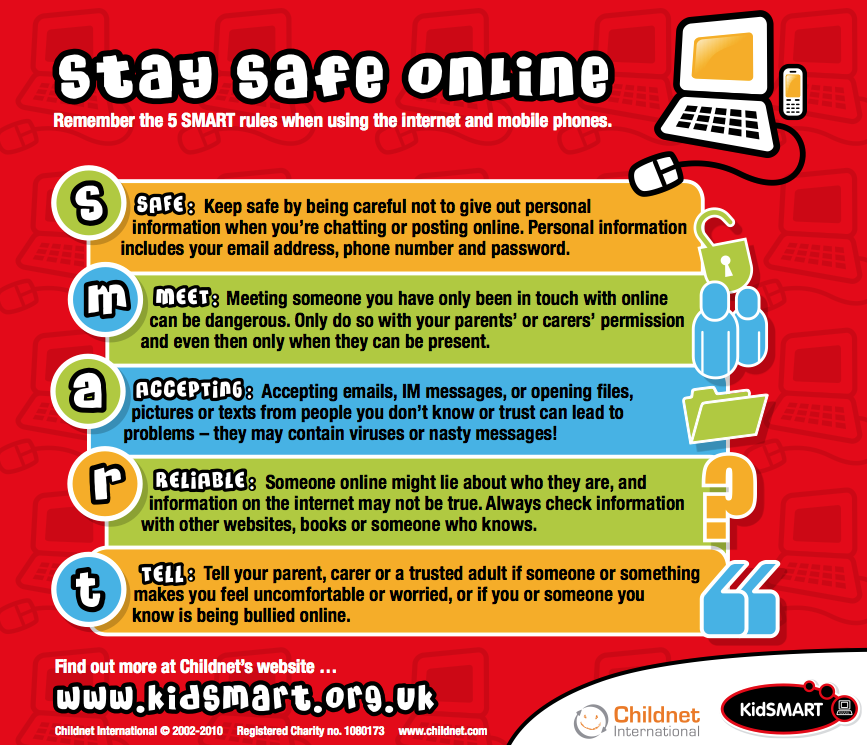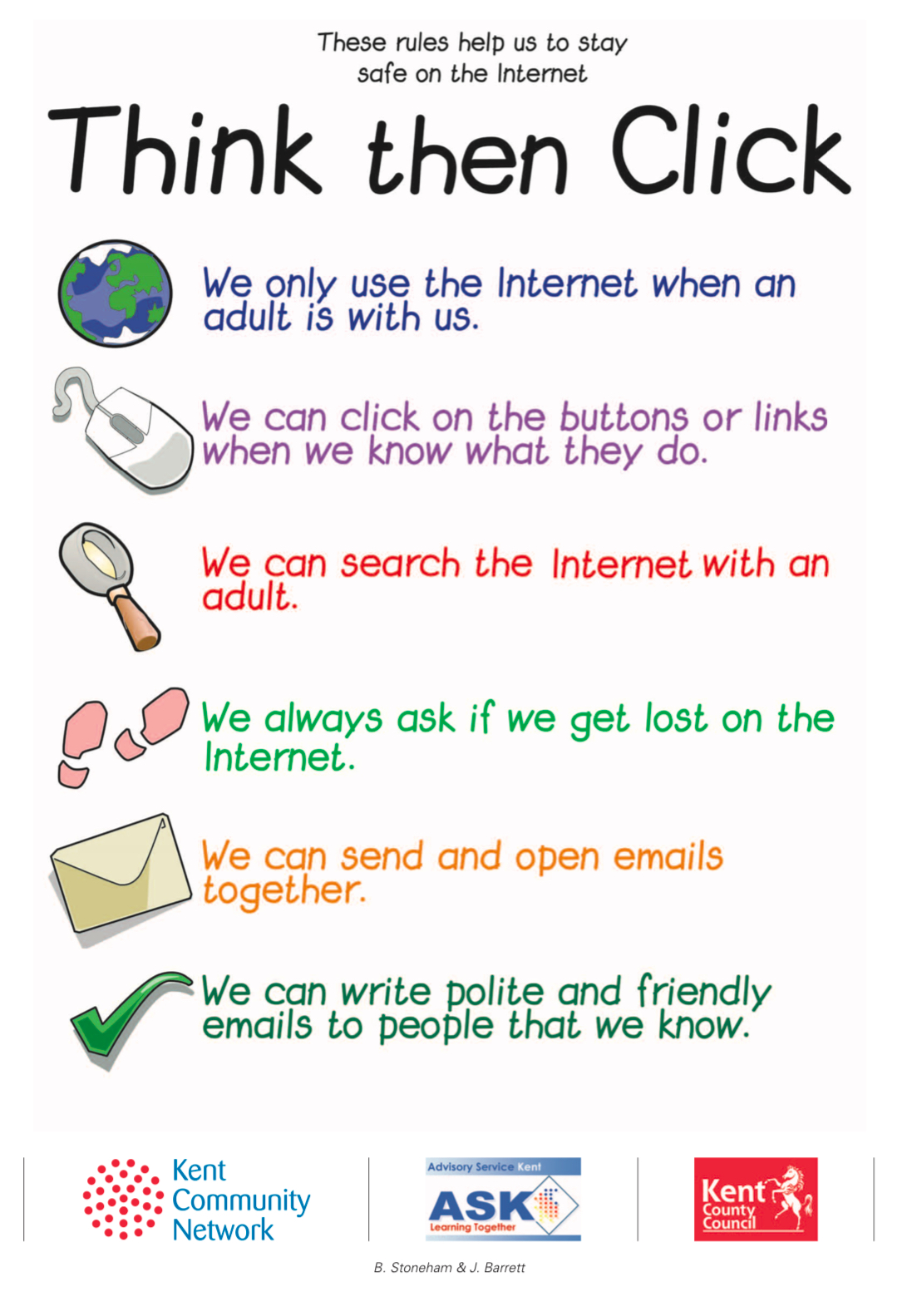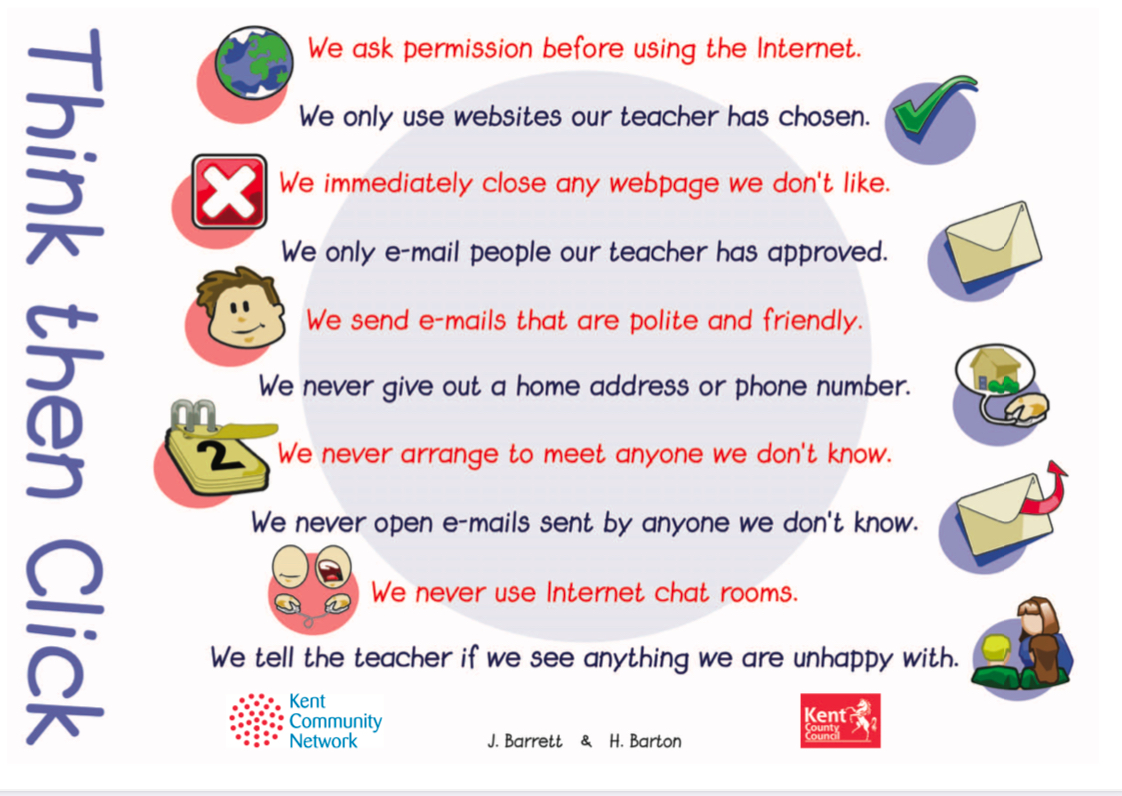Staying Safe Online
We know that children's worlds have grown beyond the walls of the school or their homes and gardens, so we understand the important role we have in making sure they are able to keep themselves safe in the virtual world as much as the physical world. We have a robust online safety curriculum that complements the learning within PSHE and our wider personal development curriculum. We make sure that children understand the enormous benefits of technology, but we want them to recognise and manage the pitfalls and dangers successfully.
Always be careful when you are using the internet. It can help you to keep in touch with your friends and help your education – but it can also cause harm – to you and to others.
Remember help is always available at school if you are having any problems online. Don’t be afraid to talk to your teacher or another adult at school.

If you or anyone you know is worried about Child Exploitation, Online Protection or anything related to Internet safety please click the link below which will take you to the CEOP reporting website:
-
CEOP
Helpful links to look at with your family
-
Think You Know
Age 5 - 7
-
Think You Know
Age 8 - 10
-
Think You Know
Age 11 - 13
Tips for staying safe online:
- Make sure you keep new online friends strictly online. If someone you don't know asks to be your online friend you must ensure an adult knows about it.
- Know how to use the CEOP Button and how to report it to the CEOP Centre if you are concerned about someone’s online behaviour towards you.
Here is a great link to a whole host of advice on staying safe online put together by O2.
Children and Young People of today are increasingly using Information & Communication
Technology (ICT) in schools and in the home. It’s important that we keep Children and Young People safe and educate them to keep themselves safe whilst Online, and using modern technology.
Please click links below to view our Online Safety Policy and Acceptable Use Policy
This E-Safety page aims to provide you as Parents, and Carers guidance on keeping children and Young People safe whilst they engage with ICT.
Foundation Stage / Key Stage One

Click Here to visit the CBBC website for further e-safety resources
Key Stage Two

Click Here to visit the Kidsmart website
General
General guidance on keeping children safe in our modern world
